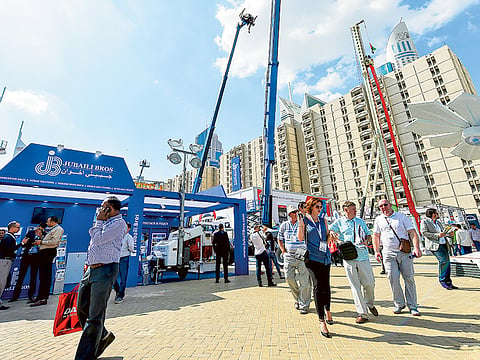Developers put the squeeze on contractors
They call the shots by renegotiating project pricing on their terms

Dubai: While construction activity awaits a pickup, the biggest concern for UAE’s contractors now is how their project pricing is being renegotiated by developers. This is getting done unilaterally, with contractors in most instances in no position to put up any sort of resistance.
This has had a telling impact on revenues and margins for the construction industry, and reflected clearly in the lacklustre numbers put out by the publicly listed companies in the last two quarters.
Blame the softness in building material prices for developers getting to call the shots and contractors bowing to their demands, according to sources.
“Cost terms are being rewritten simply because developers are capitalising on their terms by moving the original tendering prices lower,” said Sameer Lakhani, managing director of Global Capital Partners. “Often, this is being manifested through longer repayment plans, although price write-downs are now starting to become more common.”
When the main contractor is faced with lower realisations from a project, this then cascades right through the rest of the sub-contracting industry as well as suppliers of the commodities. This will remain the case until the market gets seeded with a steady stream of new projects and contractors have enough work to compensate for lower returns from their existing exposures.
“Signed contracts have fixed terms... however termination can be a written in as an option even though it may be an expensive one,” said Christopher Seymour, Head of Middle East Markets at Arcadis. “With less work being committed, [price] inflation is unlikely to be at forecast levels, which has made some clients reconsider their current agreements.
“And while contract terms vary, faced with a project suspension as opposed to a renegotiation of an existing contract, some contractors would opt for the latter to keep cash coming in.”
Is it then a case of contractors having to take it on the chin and do nothing about it? “We wouldn’t say contractors are forced to work under stringent pricing conditions since these would be part of the agreement which they voluntarily sign up to,” said Seymour.
“Cash flow, however, is by far the most important aspect for the contracting community. With some reports of delayed — or late — payments beginning to filter through, this is likely to mean that some provisioning for the debt will be required which could impact contractors’ end of year results.”
Another trend — though one that is not favourable for the industry – is of projects getting “fragmented” and which inevitably leads to smaller ticket sizes for contractors. But developers need to be aware this could have consequences for them at a later stage, whereby “losing scale can cause prices to increase”, said an industry source. “The long term upside therefore is often quite limited.”
UAE’s construction industry will not be looking to this year with fond memories. It has had to endure quite a bruising time, and the scars are yet to heal. But they should learn to manage expectations of what 2016 will bring on.
“The bulk of the project activity will be driven by government-led contracts, and that should be enough to keep local contractors busy for the next four years,” said Khalid Bin Kalban, CEO of Dubai Investments, at a recent media briefing. “But I don’t think there will be a surplus of projects and which would require contractors to suddenly scale up their resources. It’s not going to be a 2007 repeat, that’s for sure.”



